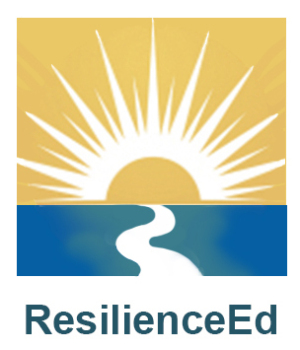Resilience Ed
From ‘I can’t quit’
to ‘I won’t quit on myself’
The skills Utah teens never learned—until now.
10.5% of Utah high school students reported current e-cigarette use—higher than the national average. 1 in 3 Utah teens with depression (41.5% in 2021) report self-medicating with drugs/alcohol. Only 18% of Utah teens get help.
–2023 National Youth Tobacco Survey, SHARP & SAMSHA Studies, CDC
What Actual Students Say About Their Resilience Ed Experience
Your Student Isn't Broken
They’re stuck in a loop no one taught them to escape. Here's how we rewrite the script.

A Unique Solution
A science-backed program for Utah teens battling addiction—where they are, in school.
Fill out this form to get connected:
The form will reset and be empty after you hit submit.
We replaced detention with recovery. Now students ask to attend.
A free, grant-funded program reducing addiction in Utah schools—
during school hours, with zero student cost.
What Schools Say About Resilience Ed
How It Works
Full Year Program
Resilience, Health + Leadership Topics | As students need, and as they + their mentors choose
Student-Led
Topics are completed at the student's pace, with positive peer and adult involvement
Zero Cost
(grant/donation-funded)
ASK US HOW
FAQs +
For Parents, Educators & Administrators
1. What makes Resilience Ed different from other school programs?
Resilience Ed focuses on recovery, not just prevention. We help students already struggling with addiction through:
-
A mix of in-person and self-led topics during-school (minimal disruption).
-
Evidence-based methods (CBT, peer support, trauma-informed care).
-
No stigma—privacy-protected and counselor-supported.
2. How do you protect student privacy?
- The program takes anonymous feedback. In-class, online/school-system activities and self-assessments are measured by participation, and are not linked to individual identities.
- School leadership oversight.
- Anonymous feedback: Students share progress without names attached.
3. Will this take time away from academics?
- Schools choose ideal times when students participate in self-led topics. Once a month in-person class celebrations are planned with the school in advance.
- Each student earns monthly positive improvement feedback from teachers/parents/employers (e.g., better engagement in learning, increaed attendance, improved skills).
4. How is this program free for schools?
- Resilience Ed is funded by grants (e.g., Positive Behaviors Grant, Title IV Safe Schools).
- Donations from local organizations.
5. What ages/grades is this for?
- Designed for middle and high schoolers (grades 6–12).
6. How do you measure success?
We track:
- Reduction in repeat offenses (e.g., vaping incidents).
- Student self-reports on coping skills.
- School data on absences/discipline referrals.
- Anonymous student self-assessments and program feedback.
7. What if parents don’t want their child to participate?
- Parents must opt-in before their student can attend. Schools can reccommend students, or open availability first-come, first-served.
- No labeling: Sessions are framed as “wellness skills,” not “addiction treatment.”
8. How quickly can we launch Resilience Ed?
- Schools and Resilience Ed Teams work together and plan out what works best (Ask us about help expediting grant applications).
9. What’s required from the school?
Just a couple of things:
- Leadership approval.
- Grant approval.
- A staff liaison (e.g., VP, Dean or counselor) to coordinate.
- Space for sessions (e.g., classroom, cafeteria, auditorium).
- Obtain parent consent for their student to attend (e.g., surveys, emails, announcements).
10. How can I get this in my school?
Parents: Email your principal/counselor using [this template].
Educators: Schedule a 15-min consultation to discuss first steps.
Administrators: Call us at (385) 452-1460 and leave a message to fast-track..
Fully Funded by Grants—Zero Cost to Your School
Utah’s PBIS Grants Cover Resilience Ed 100%. Here’s How It Works.
1. Utah PBIS Grant Benefits
What It Covers:
- All program materials, training, and school support.
- Aligned with PBIS Goals: Resilience Ed qualifies as a Tier 2 intervention (targeted support for at-risk students).
Why PBIS Syncs With This Program:
- Data-Driven: Tracks reductions in disciplinary incidents (e.g., vaping, suspensions).
- Sustainable: Schools reapply annually—we help streamline the process.
2. How to Apply
Step 1: Check eligibility (Utah State PBIS Grant Guidelines). INFO HERE
Step 2: Submit by the Spring/Summer deadline. Need help? We review drafts for free.
3. Donations Welcome
- For Schools Ineligible for PBIS Grants: Community donations can bridge the gap.
- Tax-Deductible Giving: Support students directly via:
Parent Options
-OR-
How to Help My Student's School: Get The Free PDF
Resilience Ed Mission
We empower youth to overcome addiction and build unshakable resilience by mastering skills of (a) emotional agility, (b) purpose-driven decision-making, and (c) radical self-advocacy—through methods most have never encountered.
We reject one-size-fits-all solutions. Instead, we blend trauma-informed neuroscience, experiential learning, and the hard-won wisdom of those who’ve walked the path from despair to extraordinary achievement.
Resilience Ed Vision Statement
We believe every young person—no matter their background, struggles, or circumstances—holds an unshakable capacity to learn, grow, and thrive. Resilience Ed exists to transform barriers into breakthroughs by equipping students with the tools, mentorship, and mindset to navigate life, claim their confidence, and build a future defined by purpose, not limits.
Education isn’t just about academics; it’s about skills of hope, excitement to learn, and the stubborn refusal to let any student fall through the cracks. We measure our success not only in grades earned, but in stories rewritten… This is for the student who believed ‘I can’t’ and now says ‘I will.’













